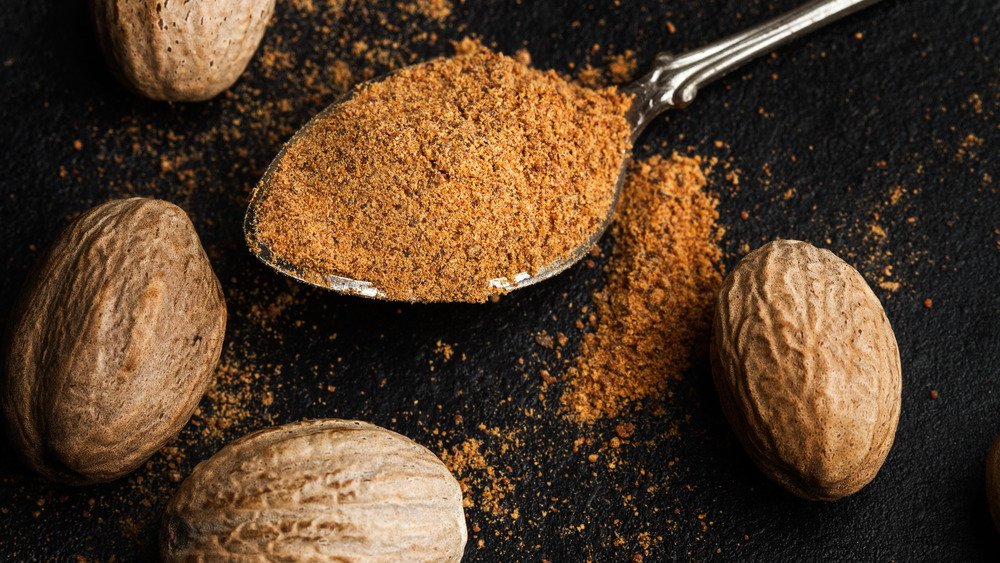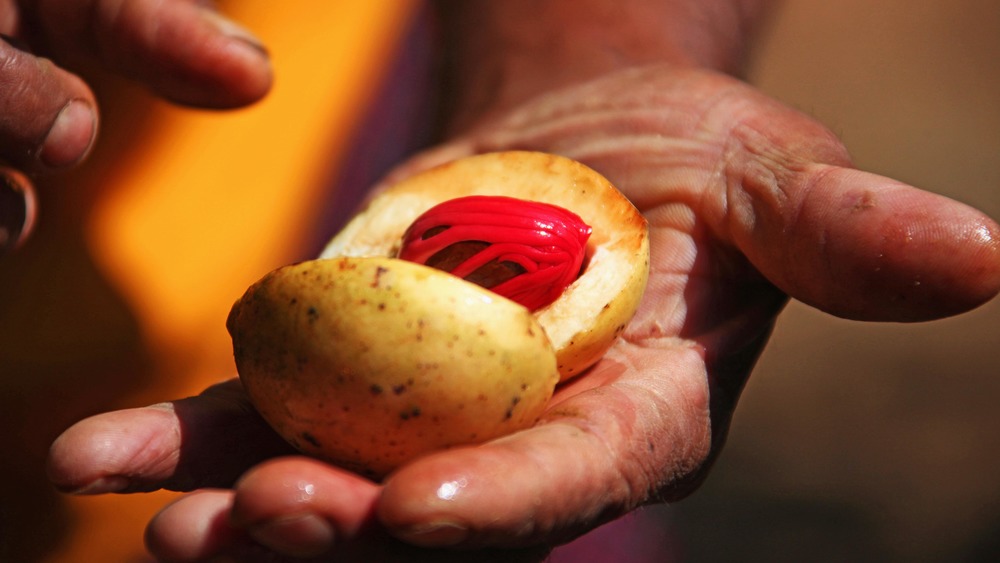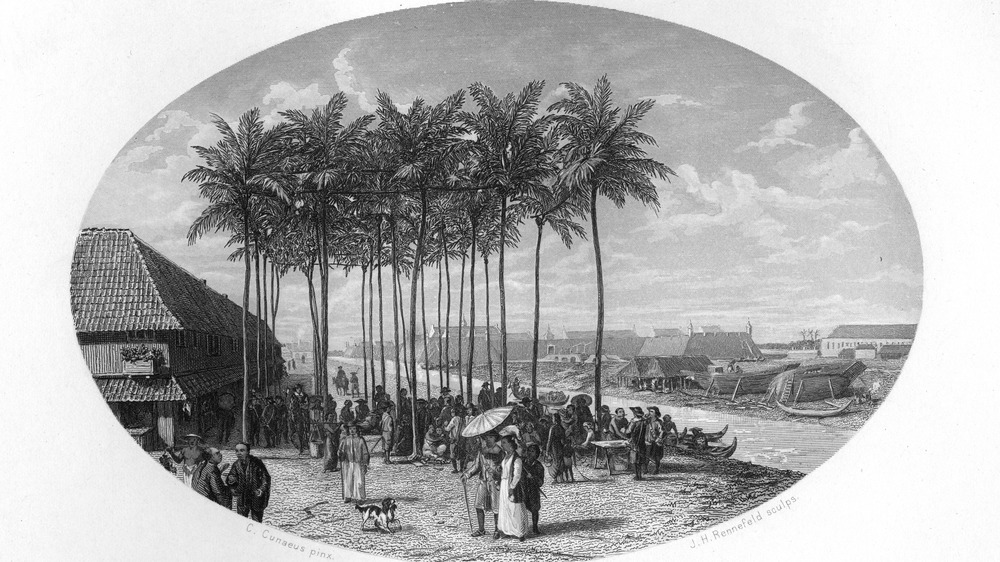The Dark History Of How Nutmeg Became The Smell Of Christmas
The rich, inviting aroma of nutmeg is part and parcel of the holiday season. One whiff of the heady spice is enough to bring back strings of warm memories of hot cocoa, eggnog, and a whole array of cakes, cookies, and other sweets while keeping warm around the fire. Along with cinnamon and clove, nutmeg is an essential ingredient in the recipe for the infamous and ubiquitous pumpkin spice, basically the official smell of Christmas now.
Despite its association with snuggling up and staying warm while the snow falls outside, however, nutmeg actually comes from a tropical plant native to a tiny 11-island archipelago in Indonesia, to the east of the island of Java. The history of how it came to be a staple in our kitchens is not really in line with the whole "Peace on Earth, good will to men" business we like to tell ourselves that the holidays are all about. The notions of reunion, comfort, and human connection we now get from a hint of nutmeg wafting from the kitchen actually came at a pretty terrible human cost.
The rarity of its supply combined with the outrageously high demand for it in the west (in addition to its flavor, it was also prized for its supposed healing properties) put the Banda Islands in the crosshairs of one of the colonial era's most vicious commercial enterprises. Historian Michael Krondl told NPR that nutmeg's "is one of the saddest stories of history, in many ways."
Nutmeg's bloody route from tropical islands to Christmas staple
Nutmeg is native to Indonesia's Banda Islands. "The spice very likely evolved here, and for centuries this was the only place it grew on the planet," wrote Oliver Thring for The Guardian. As early as the 6th century, the pip of the fruit of the Myristica fragrans tree had made its way to Byzantium, the city that is now Istanbul, over 7,400 miles away from the tiny Banda Islands. During the Dark and Middle Ages, Arab traders controlled the global nutmeg racket, keeping the location of the Bandas a tightly guarded secret. In the 1300s, a pound of the stuff cost as much as "seven fat oxen" in German markets. Needless to say, lots of people in Europe wanted to get their hands on the nutmeg trade.
When the Ottoman Turks conquered Constantinople (also now Istanbul; it's a whole thing) in 1493, Europeans were forced to find different trade routes. The Portuguese ended up taking control of the Bandas in 1511, and they had a monopoly on the world' supply of nutmeg that would last almost a century. As enterprising as the Portuguese were, however, they would soon come up against an organization that was willing to do just about anything to make a buck. At the beginning of the 17th century, the Dutch East India Company (VOC, for its initials in Dutch) took control of all but one of the Banda Islands and quickly set to enslaving the inhabitants.
The slaughter that brought nutmeg home for Christmas
The VOC banned the export of nutmeg trees, doused the pips in lime to make them infertile, and instituted the death penalty for any outside the company suspected of trying to get in on the trade, or rather, just anyone, basically. In response to some islanders not following the rules that had been imposed on them, the VOC beheaded every male on the islands over the age of 15. Upon the arrival of the VOC, the Bandas boasted a population of around 15,000. Fifteen years later, that number was down to 600. That's right: Thousands of people had to die to put that pumpkin spice in your morning latte.
The nutmeg trade made the VOC the wealthiest corporation in the world, but in chasing their greed, the Dutch actually gave up another island that is also quite the cash cow. As Atlas Obscura notes, England had control of one of the Banda Islands, and in 1677, and they traded the tiny speck of land to the VOC for another island on the other side of the world, one on which you definitely can't grow a nutmeg tree. That island was Manhattan. (Thring wasn't kidding when he wrote, "It's no exaggeration to say that the hunt for nutmeg helped build the modern commercial world.") A French horticulturist snuck some nutmegs and trees off the islands a hundred years later, and the VOC's death grip on the nutmeg trade finally came to an end.


